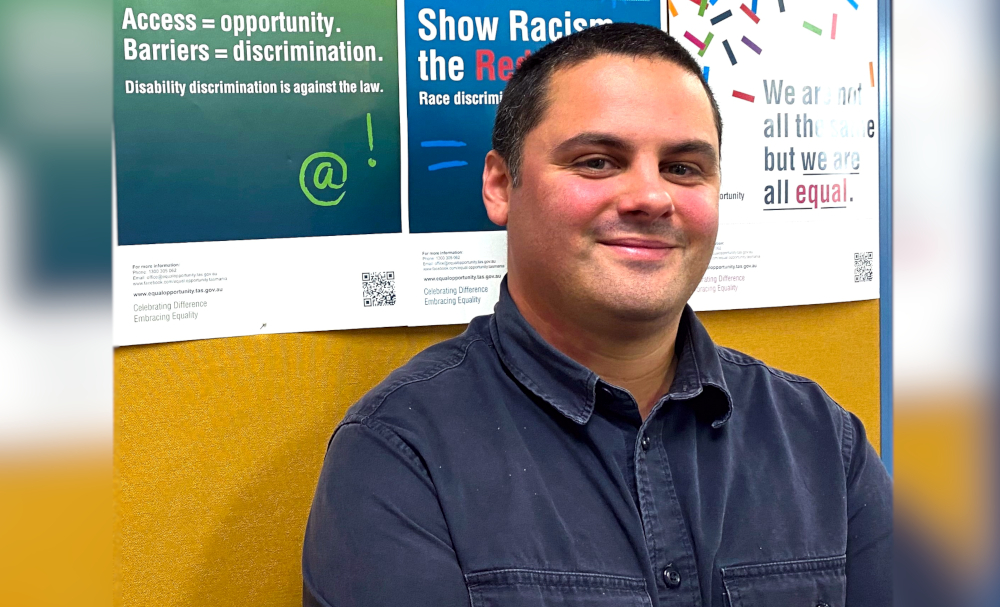More focus on the people-side of our business is one of the ways Homes Tasmania is doing business differently and it speaks to one of our core values – ‘we will have heart’.

Client support coordinator, Caleb, says annual property inspections can feel overwhelming for some tenants.
“Tenancy staff are being encouraged to ensure these inspections are an opportunity for a two-way conversation, and are not just a process of ticking boxes,” Caleb says.
For Caleb, the client support coordinator role, he has been acting in for the last six months, is about taking an intentional, person-centred approach to tenancy management work.
“These roles have changed from ‘intervening in tenancies’ to building relationships and helping tenants get support to maintain their tenancy.”
Client support coordinators help tenants struggling to manage their home and are at risk of eviction by talking about their needs and referring them to appropriate support services.
“My way of taking a person-centred approach is showing our tenants compassion, love and respect,” Caleb said.
“I really believe that if a person is in a good space physically, emotionally and mentally, they’ll take care of their home.”
“I’ve had some elderly clients who had tenancies at risk because of concerns with their condition of property. I’ve been able to support them by arranging aged care packages,” Caleb said.
The client support coordinator provides support for the duration of need. Support will be ongoing but may reduce in frequency as the tenant achieves positive outcomes.
“I have an older tenant on the East Coast who has no family in the area and has had issues with hoarding. He now has rural support in place, and I see him once a month to maintain the relationship and keep in touch.”
The client support coordinators meet new or more complex clients as often as is needed to support the tenant.
“Once a fortnight is not always enough time for them to have put the actions in place we discussed at the previous meeting, but it’s really useful to keep the relationship going and reinforce our plan.” Caleb said.
Caleb notes that the role provides opportunities to tenants beyond good housing outcomes.
“Sometimes we work on practical solutions to help them like organising a skip bin to deal with rubbish and sometimes we focus on their personal goals,” Caleb said.
“I used to work with young men from low socio-economic homes. I’d ask them what they wanted to be, and they’d initially tell me that they’d be like their parents – and live off government benefits. My role was to instil value, worth and purpose with them. I remember when one of these young men finally told me he wanted to be a mechanic. I realised how important it was to believe in people and give them hope. It’s the same in this role.”
Caleb has been with Homes Tasmania for a year after moving from Wollongong in NSW. Social housing has been part of his background because his father-in-law had a public housing tenancy for a few years before his death.
“I really saw the good side of public housing and how it made a real difference in his life. His mental health improved with the stability long-term, secure housing provided him.
“He was Turkish and English was sometimes a barrier so I would be there when there was a condition of property inspection, so I got to see the relationships he had with his tenancy workers and how important that was,” Caleb said.
“I’ve only been here a short time, but I am so thankful for the opportunities I’ve had already. I love my work and what I do, and I love my team. It’s a great work environment.”
There are three ways you can be referred to a client support coordinator:
- Your tenancy officer can make a referral.
- One of your current support providers can make a referral.
- You can refer yourself.
Tenants must consent to support.
Call Homes Tasmania on 1300 665 663 or by email at tenancyservices@homes.tas.gov.au for more information.
Back to news and announcements
